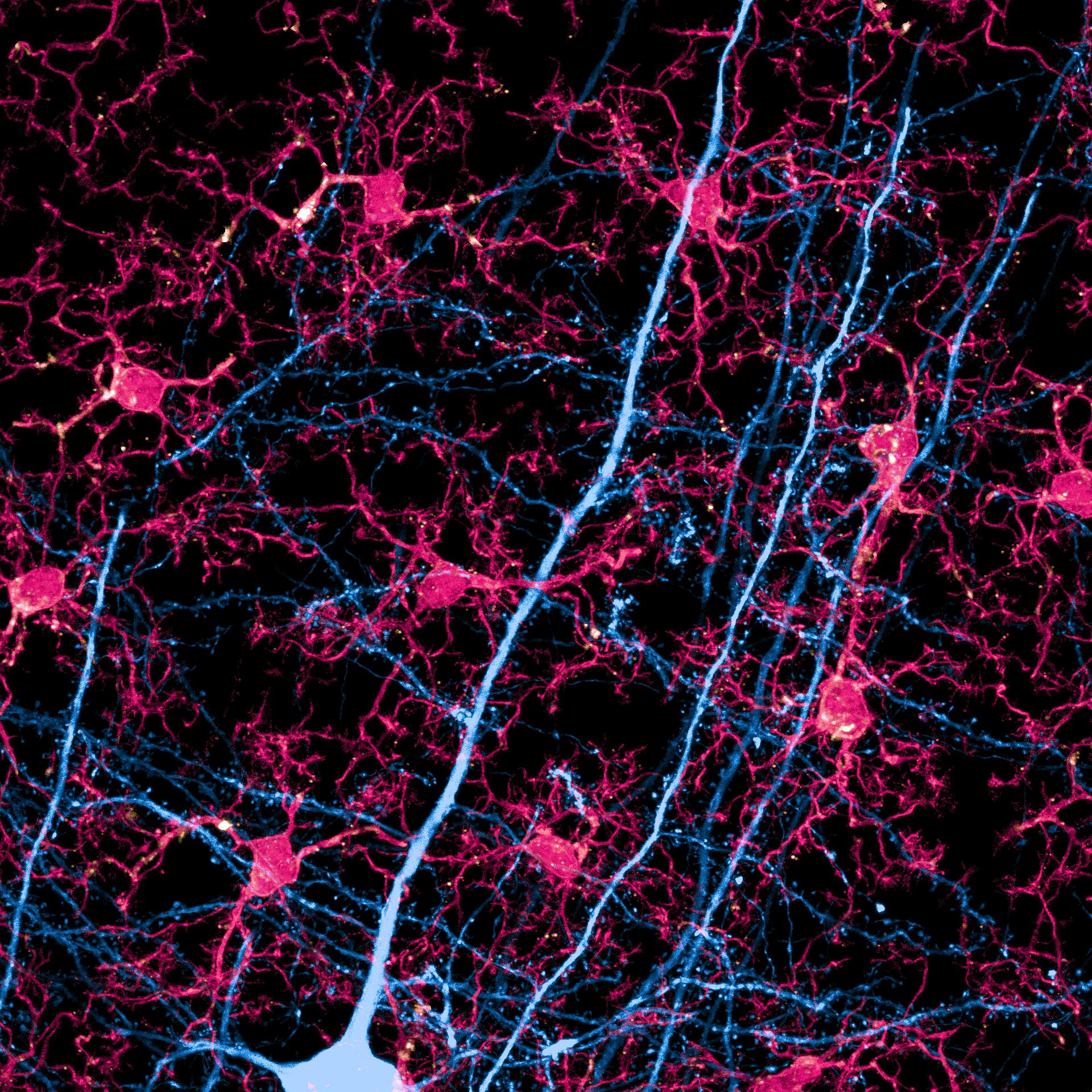Long-term Benzodiazepine Use Attacks Synapses
Lab studies show that benzodiazepines lead to the loss of neural connections in the brain

Benzodiazepines are effective and widely used drugs for treating states of anxiety and sleep disorders. While short-term treatments are considered safe, their long-term intake can lead to physical dependence and, particularly in the case of older people, to cognitive impairments. The mechanisms by which benzodiazepines trigger these changes had previously been unknown. Researchers led by Prof. Jochen Herms and Dr. Mario Dorostkar from the Center for Neuropathology and Prion Research of Ludwig-Maximilians-Universität München and DZNE have now been able to demonstrate in an animal model that the active ingredient leads to the loss of neural connections in the brain.
A key role is played by immune cells of the brain known as microglia. Benzodiazepines bind to a specific protein, the translocator protein (TSPO), on the surface of cell organelles of the microglia. This binding activates the microglia, which then degrade and recycle synapses — that is, the connections between nerve cells. Experiments carried out by the scientists showed that the synapse loss in mice that had received a daily sleep-inducing dose of the benzodiazepine diazepam for several weeks led to cognitive impairments.
“It was known that microglia play an important role in eliminating synapses both during brain development and in neurodegenerative diseases,” say Dr. Yuan Shi and Mochen Cui, first authors of the study. “But what really surprised us was that such well-researched drugs as benzodiazepines influence this process.” When diazepam treatment was discontinued, the effect persisted for some time, but was ultimately reversible.
In the opinion of the researchers, the study could have effects on how sleep disorders and anxiety are treated in people at risk of dementia. “Drugs that are known to have no binding affinity to TSPO should be preferred where possible,” say the authors.
March 2022
Original publication
The benzodiazepine diazepam impairs dendritic spine plasticity via microglial translocator protein (TSPO).
Yuan Shi, Mochen Cui et al.
Nature Neuroscience (2022).
DOI: 10.1038/s41593-022-01013-9
